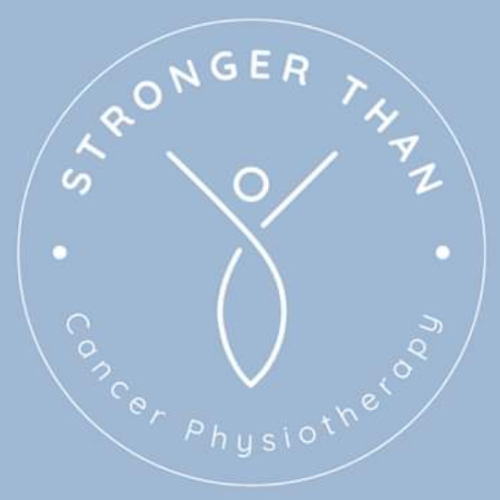How I became a cancer physiotherapist
This article was written as a guest post for The Pain Coach Richmond Stace. Follow his brilliant work on Instagram @painphysio
My work as an oncology physiotherapist
My career to date
Since becoming a physiotherapist, I knew I wanted to work in oncology. This decision was shaped by various experiences in my teenage years, including watching my Granny go through ten years of cancer treatment before she died when I was 16. I sometimes think about the sliding doors that led me to the job I’m in now – and how close I was to choosing an entirely different career path. I know somehow my Granny led me into my dream job and I’m grateful every day for it.
Working in oncology is different every day; cancer can affect any part of the body, so for every patient I work with, I may see any combination of cardiovascular, orthopaedic, respiratory, neurological, musculoskeletal and holistic problems. For this reason, I must be flexible, creative and patient-centred, in order to provide my patients with the best possible care.
I am a huge advocate for the NHS, and extremely proud of the work I have done and continue to do within our incredible national treasure. I am currently working full-time in a hospice, while also doing bank shifts in an oncology intensive care unit. It is such rewarding work but, as someone who is made up of both a scientific and creative mind, I found the strict structure of the NHS curbed my visions for better ways of providing care.
The current situation in oncology rehabilitation
Currently, physiotherapy and other allied health professions are hugely under-utilised in oncology. With only 30% of the people needing cancer rehabilitation receiving it, it’s clear we have a long way to go.
Thanks to incredible research and trials, we are seeing better outcomes in cancer; there is now an average ten-year survival rate of around 50 % across all cancer types. The flip side of the coin is that we are seeing more long term side-effects resulting from more advanced cancer treatments. I have met people who are in remission, but have
accepted living with a compromised quality of life because they believed this was the cost of being cancer-free. This is not true!
Physiotherapists and allied health professionals can work with people to manage the side effects of cancer and treatment, allowing them to live fulfilling, active lives. My vision is to use physiotherapy to help as many people as possible to enjoy a meaningful life after cancer. Is this not why we go through the treatment in the first place? We must get more people talking about cancer and rehabilitation.
My vision
In the face of our uncertain future in healthcare, I feel passionate about providing those going through cancer with the highest quality support. When seeing outpatients in the hospital, I found there were patients travelling from outside of London to see a specialised oncology physiotherapist. Since a majority of these people were experiencing fatigue and pain, this felt so backwards to me and I knew there must be a better way to deliver high-quality advice – without the financial, time and physical implications of a hospital round-trip!
I knew the solution was to take my expertise online, to reach as many people as possible, regardless of geographical location and local services. I spent most of 2019 thinking about my idea, unsure of where to begin. Then, on New Year’s Day, while on a flight home from New York, I decided I had to just go for it (I always do my best thinking on planes and trains – anyone else?).
The very next morning, I set up my website and STRONGERTHAN was founded!
What do I offer?
I offer 1:1 online physiotherapy appointments to those living with and beyond cancer., to help them stay strong in body and in mind. I love to work with a diverse range of people of all ages, backgrounds, cultures and abilities. There are countless reasons that someone may seek physiotherapy; from exercise and lifestyle advice, to managing peripheral neuropathy or breathlessness. My role is extremely versatile and I am constantly learning from my patients, about the realities of life with cancer.
Some examples of the people I may meet and work with are:
● A young athlete, recently diagnosed with cancer, who is aiming to complete treatment and return to competing as soon and as safely as possible.
● A busy mother, who wants to improve her shoulder function following a mastectomy, so she can play with her children comfortably again.
● An older person having chemotherapy, who wishes to maintain their strength and manage their fatigue, to continue living independently at home.
● A business-professional, who would like to be able to return to their cycling commute to work, following abdominal surgery and radiotherapy.
● A person receiving palliative care, who wishes to improve their exercise tolerance in order to comfortably attend an important wedding.
● A young person in their 20s, who has poor body image following extensive treatment and wishes to maintain their weight and muscle mass.
The patient is the centre of my work – I wouldn’t have a job without them! I listen very closely to what they have to say and I want to know their story. This is something that can be done very easily by video consultation. Research has found that more people feel comfortable opening up to health-care professionals during video appointments, compared with face-to-face. This is likely due to the security that being in the comfort and privacy of their own homes brings.
I always ask myself: if it were me, ‘would I follow that advice?’. If I felt my health-care professional heard and understood what I had told them and felt excited about my goals with me – I would feel more confident to make adjustments to my lifestyle and change my habits, to better my quality of life.
Investing in physiotherapy, your health and your future is an important decision for anybody. Working with a health-care professional will provide someone with support, encouragement and accountability to ensure they are able to make the changes they need, to live their life the way they want to.
In summary…
With cancer treatments advancing, it is essential that we provide innovative after-care to match. To reach as many people as possible living with and beyond cancer, we must continue to re-think how we provide specialist physiotherapy advice.
I will continue to shout about online physiotherapy, because I strongly believe that having expert rehabilitation a few clicks away, is the path to a brighter future for those living with and beyond cancer. So, to anyone reading this post now, who thinks you or a loved one might benefit from this support – book your appointment now and thank yourself later!


